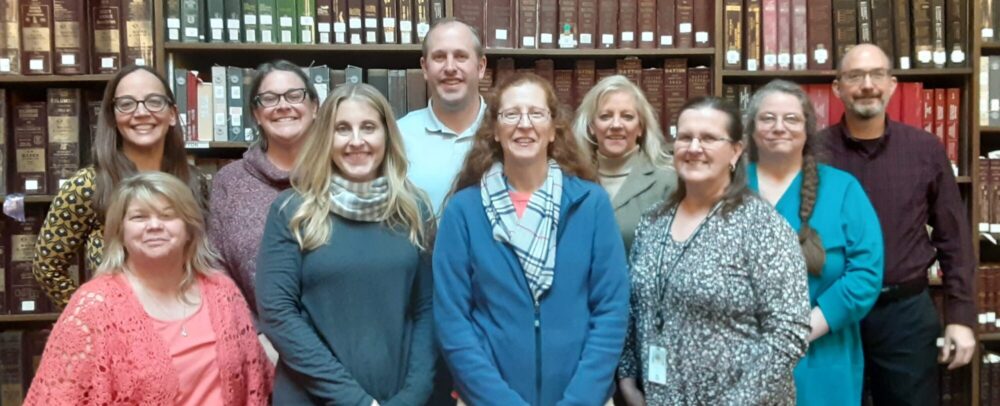As part of its 2018 grant from the National Historical Publications and Records Commission, OHRAB received funding to implement an Archival Fellowship program. This program will provide two graduate students in public history or library science programs with archival training and practical, hands-on experience. In 2018 the program focused on identifying and providing information about manumission records held in the following counties: Auglaize, Champaign, Clark, Darke, Greene, Logan, Mercer, Miami, Montgomery, Preble and Shelby.
In 1804, the Ohio General Assembly enacted the Ohio Black Codes to govern black and mulatto people residing in the state. Under these Codes, free blacks and mulattos were required to register at their local court. This registration process required providing emancipation papers or witnesses that could corroborate a person’s “free” status and a guarantee surety of five hundred dollars for the African Americans’ good behavior. Most often, manumission records were the first records to document these individuals’ journeys from being seen as property to being recognized as a person. Due to the lack of documentation on African-Americans in the early to mid-nineteenth century, these manumission records are an important resource for genealogists.
Amy Brickey and Derek Pridemore, graduate students in public history at Wright State University, received the 2018 fellowships. During the course of the project Brickey and Pridemore identified records or entries pertaining to 480 manumitted slaves from seven counties. They recorded when available the name of the emancipated slave, name of the person who emancipated the slave, location where freed, date of freedom, location of record and page number.
In addition, Brickey blogged about the project and created a story map for the counties she visited. She also created a story map focusing on the 1850 and 1860 censuses for all eleven counties, tracking the birth locations of the African-American residents.
- Champaign County Emancipation Records (Clerk of Court’s Office)
- Champaign County Emancipation Records (Common Pleas Minutes)
- Champaign County Emancipation Records (Deed Records)
- Clark County Emancipation Records (Clerk of Court’s Office)
- Clark County Emancipation Records (Probate Court)
- Greene County Emancipation Records (Clerk of Courts Records)
- Greene County Emancipation Records (Deed Records)
- Logan County Emancipation Records
- Miami County Emancipation Records
- Montgomery County Emancipation Records (Clerk of Courts)
- Preble County Emancipation Records (Clerk of Courts)
- Preble County Emancipation Records (District Library)
